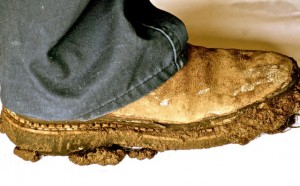I was recently reading up on the life of French artist Henri Matisse, and came across these quotes from an article he wrote:
Creation is the artist’s true function; where there is no creation there is no art. But it would be a mistake to ascribe this creative power to an inborn talent. In art, the genuine creator is not just a gifted being, but a man who has succeeded in arranging for their appointed end a complex of activities, of which the work of art is the outcome.
[…] Great love is needed to achieve this effect, a love capable of inspiring and sustaining that patient striving towards truth, that glowing warmth and that analytic profundity that accompany the birth of any work of art. But is not love the origin of all creation? (“Is Not Love the Origin of All Creation?”)
For an artist who was cryptic about his religious beliefs, I think that’s a shockingly insightful take on where true creativity comes from: love is not only important, but at the center of it all.
Paul says something strikingly similar that you might be familiar with:
If I speak in the tongues of men and of angels, but have not love, I am a noisy gong or a clanging cymbal. 2And if I have prophetic powers, and understand all mysteries and all knowledge, and if I have all faith, so as to remove mountains, but have not love, I am nothing. 3If I give away all I have, and if I deliver up my body to be burned, but have not love, I gain nothing. […] 8Love never ends. As for prophecies, they will pass away; as for tongues, they will cease; as for knowledge, it will pass away. 9For we know in part and we prophesy in part, 10 but when the perfect comes, the partial will pass away. 11When I was a child, I spoke like a child, I thought like a child, I reasoned like a child. When I became a man, I gave up childish ways. 12For now we see in a mirror dimly, but then face to face. Now I know in part; then I shall know fully, even as I have been fully known. 13So now faith, hope, and love abide, these three; but the greatest of these is love. (2 Corinthians 13:1-3, 8-13)
Paul goes a bit further than to simply say that love is at the center of all things, but he draws out the clear implication. Anything without love is useless and very likely harmful.
It’s something I experienced in my early days as a photographer, and I suspect the experience is common to many beginning artists: the desire to be excellent and attain mastery instantly kills creative effort because it’s typically born out of an insecure need to be someone great and to be admired by others as great. It’s not born of any love or interest in the subject and art itself; it’s born of a paradoxically proud and insecure love for only oneself. I’ve found it to be one of the greatest roadblocks in growing as an artist, and even now I wrestle with it as I try to learn and grow in new ways.
Pride kills creativity because pride is the opposite of love.
As Elim continues towards its next season, I think it’s important for all of us to seriously pray and think about our reasons for existing as a church. Why are we here? Why are we involved? As we learn alongside a new pastor, forge new ministries, and preach the gospel in Puyallup, why are we doing these things? Do we build because we love? Or do we build to be seen? Is the good of our community our great delight? Or do we seek to prove ourselves against others? Is it our glad honor to be part of spreading the good news of our Lord’s kingdom? Or do we just want a kingdom of comfort here and now, for ourselves?
These are crucial questions because in no small part, hard days are probably ahead. Some ministries will fail, and other efforts will take much longer to bear fruit than we’d like. If our motivations really are an insecure need to prove ourselves or a selfish need for comfort here and now, we’ll have no tolerance for trying new things, for repenting when we’re wrong, and for growing slowly into the church we would like to be.
But if love is at the center of it all? We will continue to sacrifice, continue to love our neighbor, and continue to do good even when it’s hard.
Pray with me, Elim. Pray that our Lord would make us more and more a people of deep, compassionate, generous, longsuffering love. Other matters of discipline and ministry style are certainly important—but none so much as us actually loving our God and actually loving our neighbors.
Views – 199
 Follow
Follow